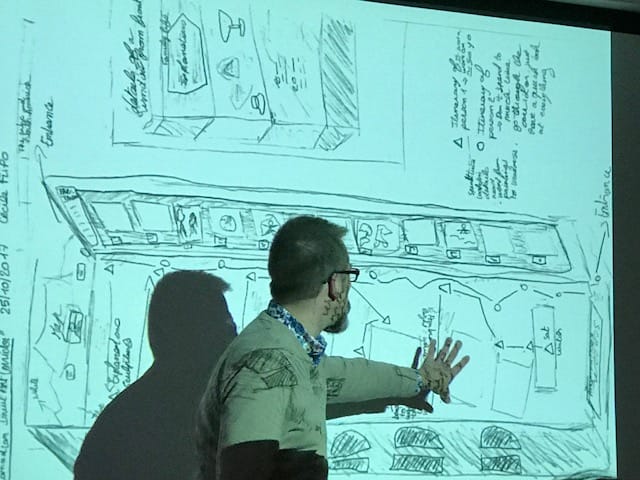Orientation / Introductory Session 1 September 9-12h
Orientation
9:00 — Erik de Maaker, Masters Coordinator, and Cindy Schotte, Study Coordinator, will provide an orientation to the general requirements of the master’s program.
10:00 — Mark Westmoreland, Coordinator of the Visual Ethnography specialization, will introduce students to the VE program and provide an orientation to the course requirements.
Drawing Tutorial
10:30 — The VE team (Mark Westmoreland, Metje Postma, and Koen Suidgeest) will lead students through a series of drawing exercises. This will be the first skill we explore and consider as a technique to both train our vision (and other senses) and get to know our research field.
Drawing can combine text and image as well as facilitate an attunement of your sensory organs; you have to train your eyes and hands to make images, drawing emphasizes this in obvious ways. Mapping is another way to explore the social, cultural and natural environment of our subjects and explore their trajectories in that space.

11:00 — Students introduce themselves
11:30 — Coffee & Cookies – informal discussion
Multimodal Seminar Mark, Metje, Koen 8 September 9-12h
The Seminar will focus on the notion of Multimodal Anthropology and the way it challenges us to take different ways of knowing seriously. Extending the learning objectives of the tutorial series, the seminar aims to push students to ethnographically learn to know through different modalities. This seminar explores the epistemological potential of recording sensory and embodied features of social experience, but asks how we maintain the ontological status of lived experiences while trying to communicate ethnographic research to both our audiences and our subjects.
We begin with each instructor providing an introduction to their practice as multimodal research-creation. This is meant to provide students with both a diverse understanding of the practices we support and the particular interests and experience of each instructor. Following this session, students will be asked to complete an intake form where they indicate their supervisor preference.
The second half of the session will require students to lead in a discussion of multimodality based on the recorded lectures, assigned readings, and other materials.
Proposal Writing Exercise Mark 8 September 12-13h
Following the Seminar, students will be lead through a series of interactive exercises to help them cultivate their research topic and how to develop an effective question to sustain a thesis project.
Supervisory Group meeting 1 8 September 14-17h
Workshop RPA 1 and FSA1
During the first supervisory group meeting, you will be randomly assigned to an instructor while we consider your preferences and assess the most appropriate pairings. Once you’ve been assigned to a Supervisor, you will remain with that instructor for the rest of the year.
“Soup Groups” are primarily feedback sessions. Approximately half the time will be devoted to reviewing the Field Study Assignment and giving comments to help students hone their technical skills, methodological applications, and aesthetic sensibilities. The other half of the time will respond to the Research Proposal Assignments as an opportunity to exploring strategies for approaching specific research issues and consider common challenges faced by all students.
